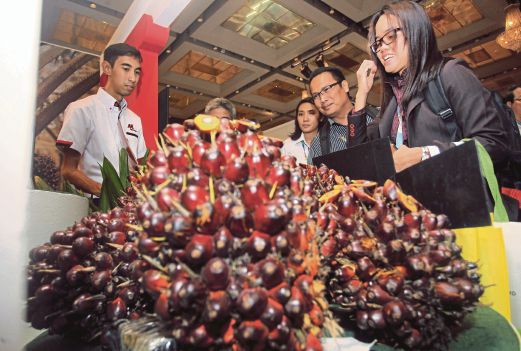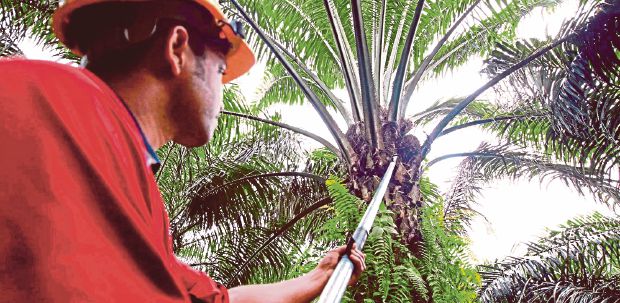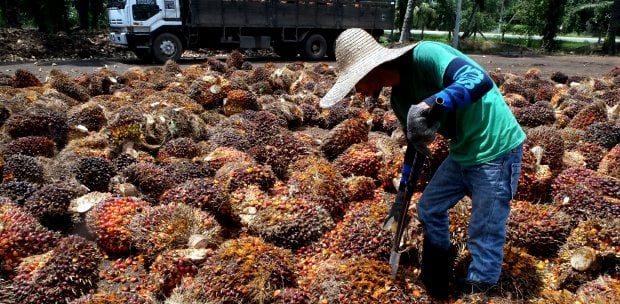WE often take things for granted. Take the case of palm oil. Many may not be aware that palm oil, now a global leader in edible oils supply, had humble beginnings. In the days when countries of Western Africa were the lone suppliers of palm oil to the world, palm oil was not considered suitable for use in cooking or for making margarine.
Most of the palm oil export which ended up in the European Union was used for making soaps and lubricating grease. But at home in Western Africa, the crude form of palm oil was their favourite cooking oil. In fact if one were to visit Ghana or Nigeria, the reddish crude palm oil is widely sold even to this day in the local market as cooking oil.
How did palm oil change from an oil which was almost an unknown to one that now dominates the world trade in oils and fats? How did palm oil change from a basically wild crop to one that is now cultivated using sophisticated plantation technologies? How did the consumer perception of palm oil change from negative to super positive?
Looking back, some countries were known to even ban the use of palm oil for human consumption then. In Iran they had a ruling in their nutrition guides which suggested that palm oil was unfit for human consumption. Of course, we are all aware of the notorious episode in the United States then when palm oil was even labelled as a poison. So what changed the destiny of palm oil?
Very few would disagree that the change in fate for the better was rooted in the revelation of new knowledge about the oil. And that came from a lot of work in research and development (R&D). As investment in R&D kept unveiling the true character of palm oil, more and more people appreciated the oil’s many virtues. That was how palm oil garnered global support.
We in Malaysia should be proud of the fact that we can take most of the credit for that image and perception transformation of palm oil. The establishment of the Palm Oil Research Institute of Malaysia (PORIM), in the 70s was the true game changer for palm oil. Not many would deny that PORIM, now known as the Malaysian Palm Oil Board (MPOB), made strategic contributions to chart the eventual success of palm oil.
Through the R&D at MPOB, earlier apprehensions about the oil’s health implications turned to positive appreciation as new evidence was uncovered. Much of the positive nutritional revelations were used to persuade countries like Iran and others to change their stand from banning palm oil consumption to encouraging palm oil intake as good nutrition advice.
There were other R&D in food uses which led to more applications of palm oil in products like margarine and shortening. Palm oil’s natural semi-solid state also helped expand the use of palm oil in such products.
A major turning point came when nutritionists stumbled on the conclusive finding that trans fats found in margarines made from soya or sunflower are bad for health. As a semi-solid oil, palm oil is free of such trans fats!
MPOB has also helped convince the oleochemical industry of the world that palm oil is an excellent feedstock for the production of a whole range of oleochemical products. Not just the simple soap products, but the higher value and more sophisticated detergents and surfactants used in many cleansing items such as shampoos and other cosmetics. That created more demand for palm oil worldwide. There is no denying that much of the research at MPOB was directed towards productivity improvements. Such R&D contributed much to the development of new more robust higher yielding clones of the oil palm.
But the latest breakthrough by MPOB’s biotechnology team promises even more for productivity gains. There is understandable excitement among industry pundits about the new genomic breakthrough. This is because it will further enhance the productivity of palms. With all such R&D success, it is time MPOB is bestowed special recognition and award. If the Forest Research Institute together with Rubber Research Institute gave birth to the rubberwood furniture industry, MPOB has created a whole palm oil industry!
The writer is a Fellow at Academy of Sciences Malaysia






